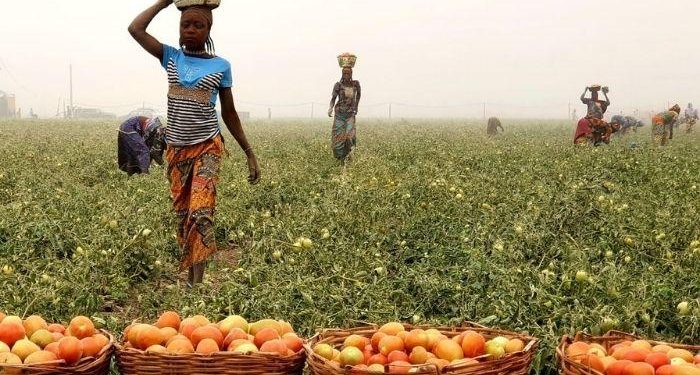Over 100 smallholder tomato farmers converged at Abule Otu (Eguru), Owode, in Obafemi Owode Local Government Area of Ogun State for the pilot phase of the Mega Field Day,an initiative aimed at strengthening farmers’ resilience and improving livelihoods through modern and sustainable agricultural practices.
The event, organised by FutuX Agri-consult Limited in partnership with Heifer International, served as a hands-on learning platform to introduce farmers to innovative and climate-smart solutions for tomato cultivation. Attendees included representatives from Heifer International, agricultural input suppliers, community leaders, and stakeholders from the Abule Otu community.
Speaking at the event, FutuX Agri-consult’s team lead, Funmi Bello, underscored the need for farmers to adopt Good Agricultural Practices (GAP) and climate-smart techniques to boost productivity, enhance pest and disease control, and ensure long-term sustainability.
Field demonstrations featured improved hybrid tomato varieties and provided farmers with practical lessons on pest and disease management, early detection, and quality seed selection.
Participants also engaged in interactive sessions where they discussed challenges, shared insights, and explored opportunities for cooperative formation and access to finance.
The Mega Field Day marks the beginning of a broader project to train 3,000 tomato farmers across Kano, Lagos, and Ogun States on climate-smart and sustainable farming practices using a business model designed to support profitability and resilience.
“The Mega Field Day was a platform for knowledge exchange and practical learning,” a representative from FutuX Agri-consult said. “Our goal is to help smallholder farmers transition to sustainable and profitable practices that strengthen food systems.”
While many farmers expressed optimism about the initiative, they also highlighted lingering challenges such as limited access to capital and insufficient public-private sector support. The organisers reaffirmed their commitment to addressing these barriers through continued training, collaboration, and capacity-building efforts aimed at transforming Nigeria’s tomato value chain.










